Weeknotes 237; robot-embodied generative intelligence
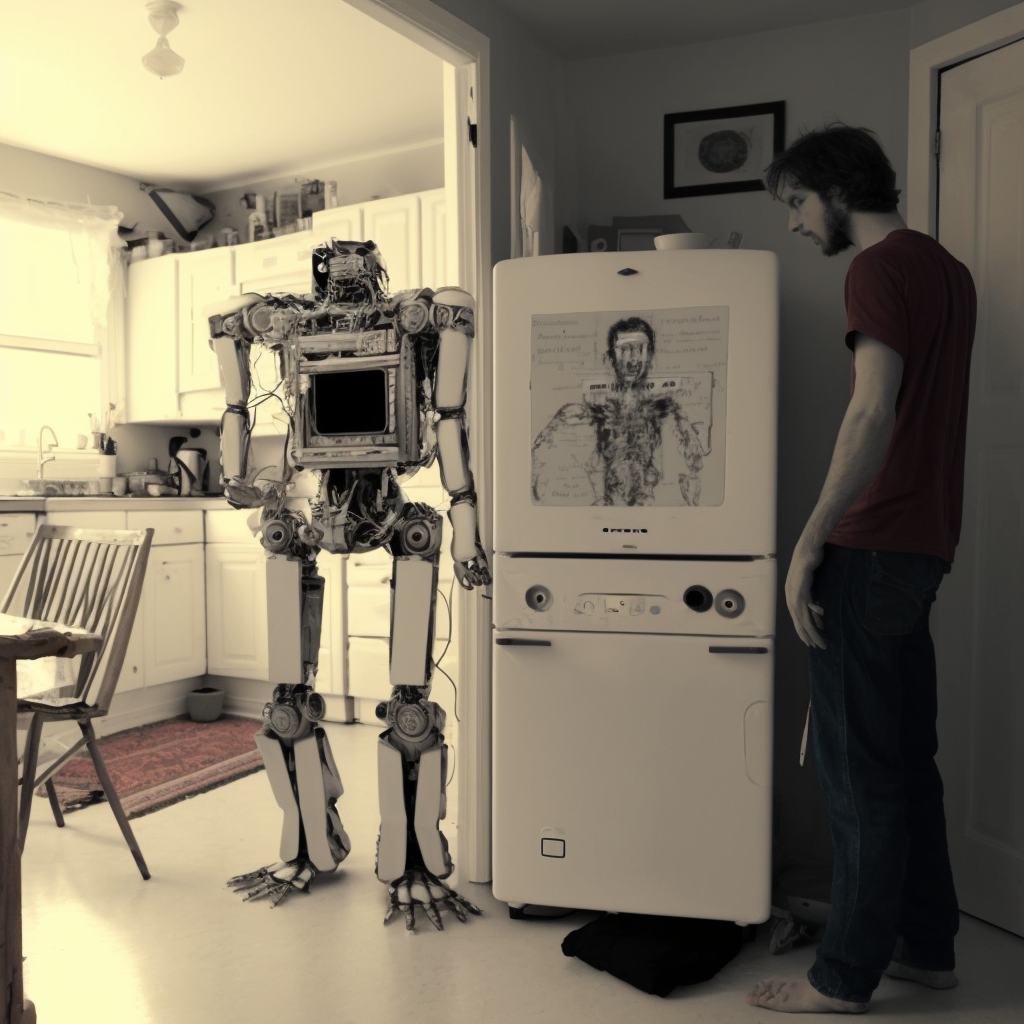
Hi all!
As with every week, first, a quick look back at the week. Here in the Netherlands, Kings Day was there, and I celebrated it for the first time in 25 years or so in Rotterdam (or better said, not in Amsterdam). That had a special reason. Partly as the king visited the city I live in most of my time. Not that I am a specific supporter of the monarchy, but we were curious to see what was happening in town. Next to that, and evenly important, as mentioned last week, the project of Cities of Things on the Rotterdam field lab has a focus on the neighbourhood Afrikaanderwijk, and that is where the king’s family started the tour. So in the different sessions, the think tank of neighbourhood citizens created a test case for the Wijkbot to connect to the King’s Day activities, collecting waste by moving around. Not at the moment of the king's parade, which was security-wise not a good idea, but after during the party in the park. The experiment worked well; the party was not that busy, but the people that were there did respond well. And we learned a bit about interacting with the bystanders and communicating the functions.

I promised last week to keep track of CHI, but I did not manage yet, except for seeing tweets from researcher friends. It looked like a very inspiring edition. Next to the one I mentioned last week, I watched one short video presentation on the Halting problem of self-driving cars, tipped via the insightful newsletter of Martijn de Waal. And also one on Machine consciousness perceptions, and earlier Maria Luce on Steering Stories, “problematize popular narratives of driving automation”
For the rest just worked hard with the startup, and it was very nice to be invited for another 2-hour Legendary Cocktail Party of Monique. She has been testing this special format and discussed a version at SXSW I think. I like the format a lot, interesting guests and a mix of drinks and art and good conversations. I hope to be able to join some more in the future!
Events
Speaking of events. Here are some that caught my eye for the coming week.
- Into society-driven research through design? In this event three researchers share their experiences. In Eindhoven 3 May.
- Also, on Wednesday, the first of the new series of General Seminar is starting. Another example of a small group format. The topic is the Future of Fashion this time; check https://www.generalseminar.com/ for exact times.
- For XR interested: Realities in Transition in Rotterdam, 4 May https://v2.nl/events/test_lab-realities-in-transition. An art night on 5 May with a presentation of results. And v2 is going all in on XR; on Thursday, there is an online event on More than human XR.
Notions of News
The news from last week with the usual mix of human-tech relations, and a lot of generative and other AI.
The homepage seems to return as a trusted beacon in times of fake news. Nevertheless, the algorithmic news service Artifact is launching an AI summary tool. Typeform is adding AI to its feature set too.
Other short Gen AI news; ChatGPT is introducing a kind of incognito mode. Stability AI introduces a special model for text-to-image that also create good texts in the image.
Gary Marcus on the battle towards AGI between east and west (China and US/Europe). He proposes a strategy to use regulatory actions to create a trusted truthful AI.

Are LLMs creating a cheap and uncontrollable internet? “Thought has never been so cheap. Creative expression has never been so accessible. Also spam, phishing, harassment mobs, and mass influence ops have never been so cheap, so accessible.”
Signing content might help.
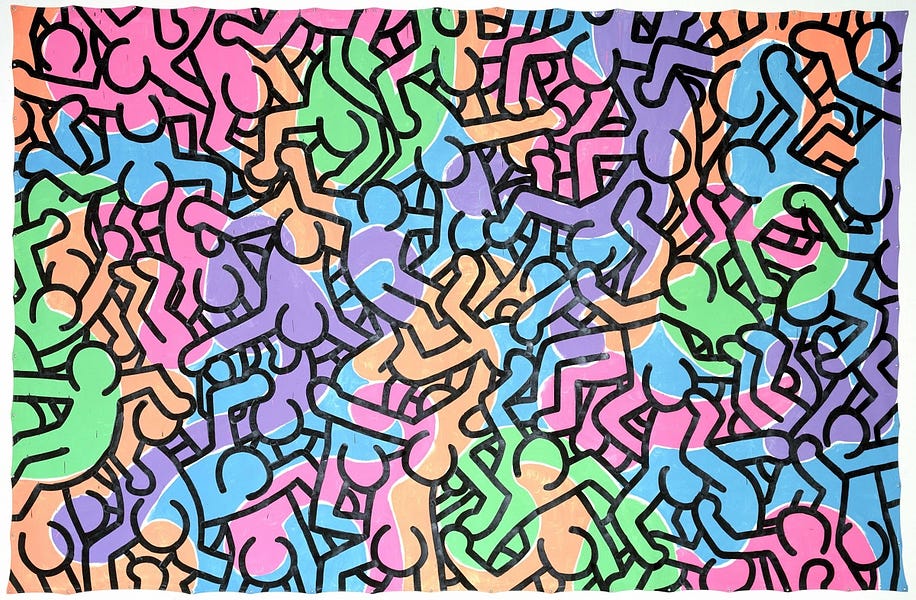
Is Apple on par with AI? Doubtful. They might introduce an AI-powered health coach, in line with their focus of the last years.

Can we indeed read minds?
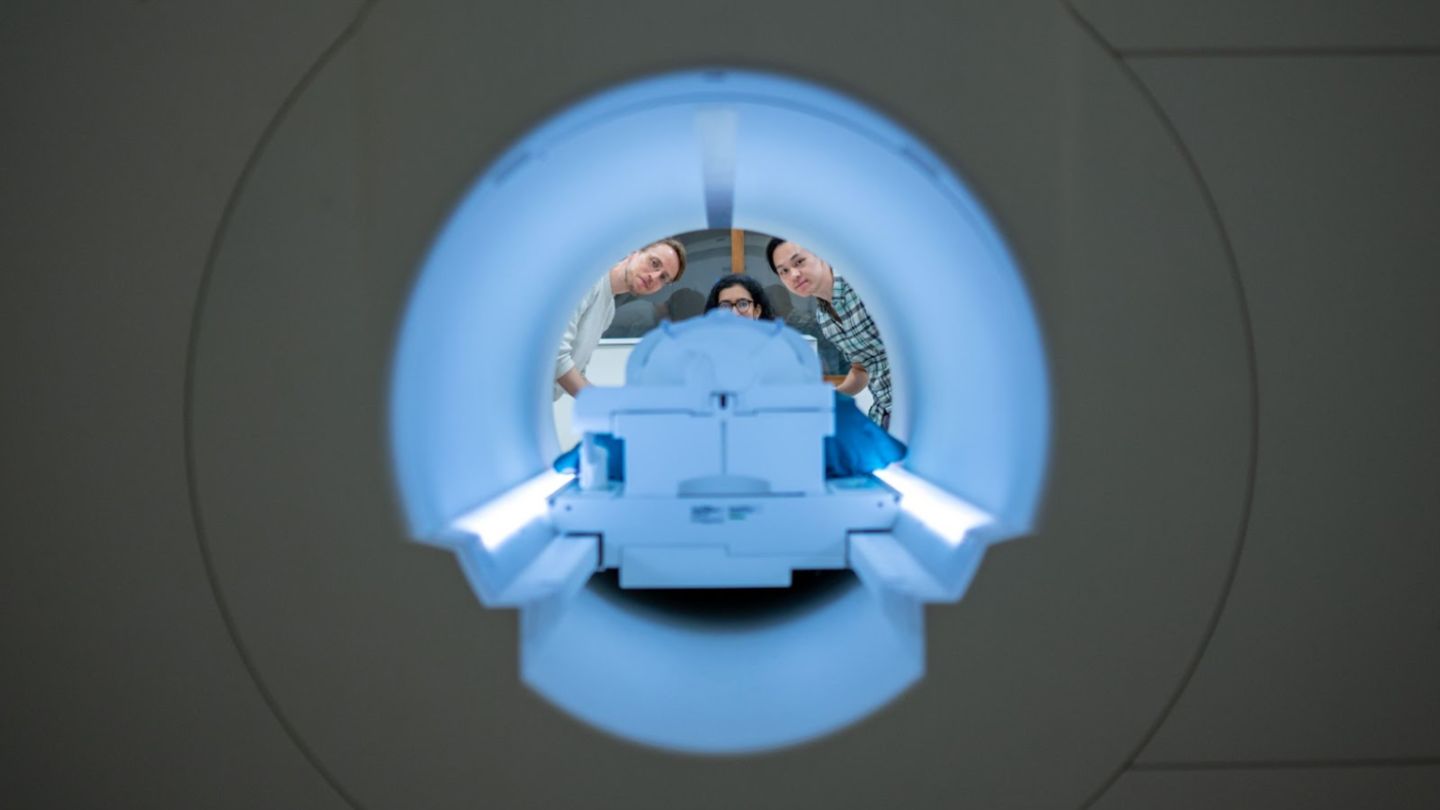
Some powerful ideas in the hackathon demo-unpacking. Lares is an iteration in the quest of Matt for an operating system for physical space. Using tools decreases the risk of hallucination and gives the AI access to accurate, up-to-date data; The future is ActGPT not ChatGPT. A robot is the embodiment of the generative intelligence. LLM need a working memory.
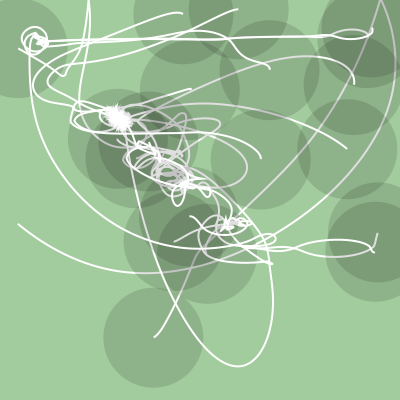
Who is profiting from AI assist and co-pilots? Inexperienced workers. No real surprise, but supported by research:

Meta wants to introduce AI agents for billions of people. Bring the intelligence to the front…
/cdn.vox-cdn.com/uploads/chorus_asset/file/22977156/acastro_211101_1777_meta_0002.jpg)
The use of pattern recognition and deep insights to define the success of a series is now extended with production. Will that be connected?

“Imagine a world in which each student receives a personalized education – just as if they had access to a one-to-one relationship with a highly skilled tutor.” It might be good, but it might also create an isolated learning experience?
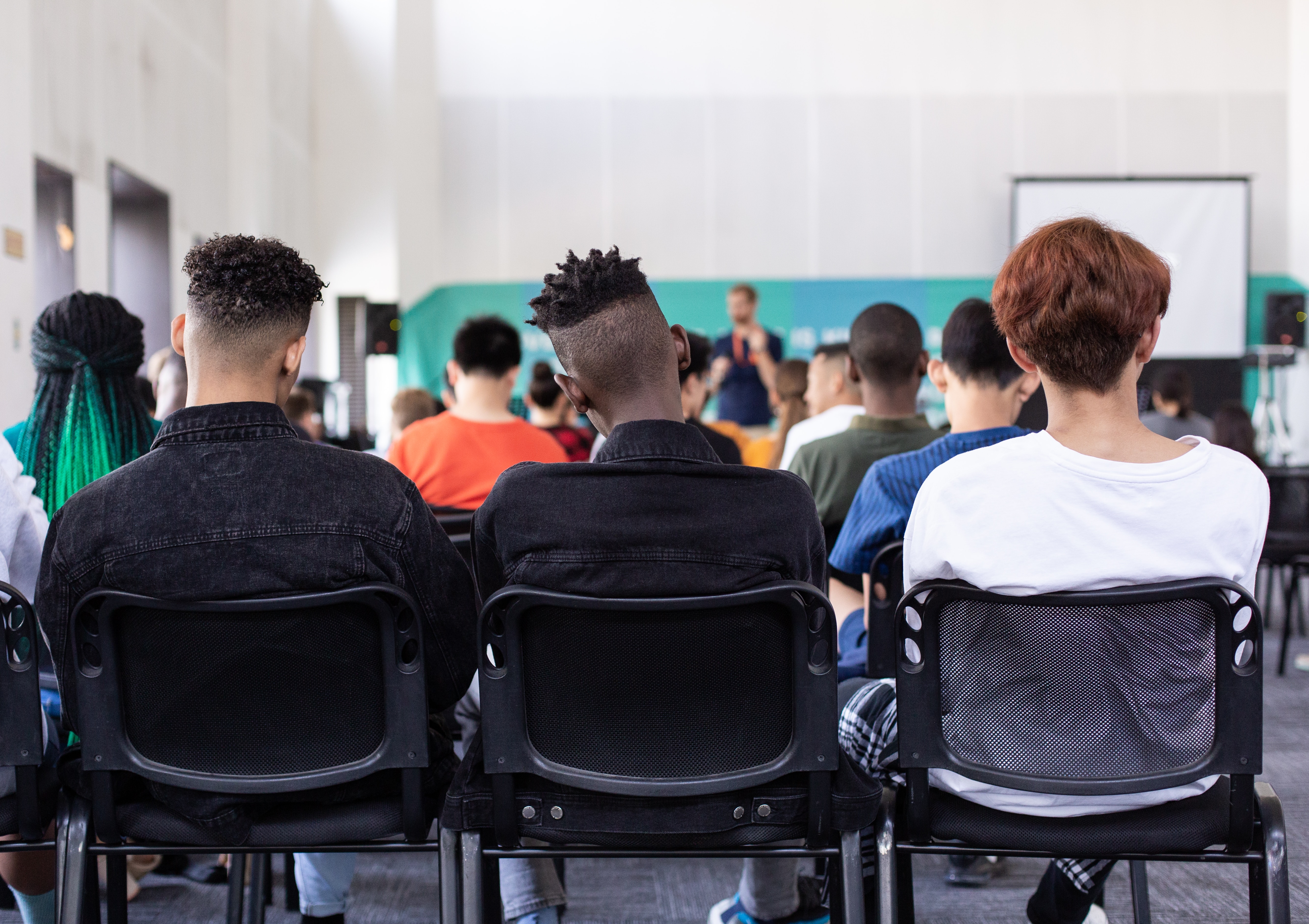
This makes total sense and was basically always one of the cornerstones of Twitter; real-time. At the beginning of Twitter I remember we framed it more as real-time media than social media. Where did it go wrong? So bringing this home with becoming the real-time search engine would be smart. Need some redesign for sure.

The quest for a new Twitter is still focusing on the social media aspects mainly; now hot is BlueSky, protocol-based decentralised.

“A new knowledge transfer technology unlocked radical new modes of human thought.” Evolving minds.
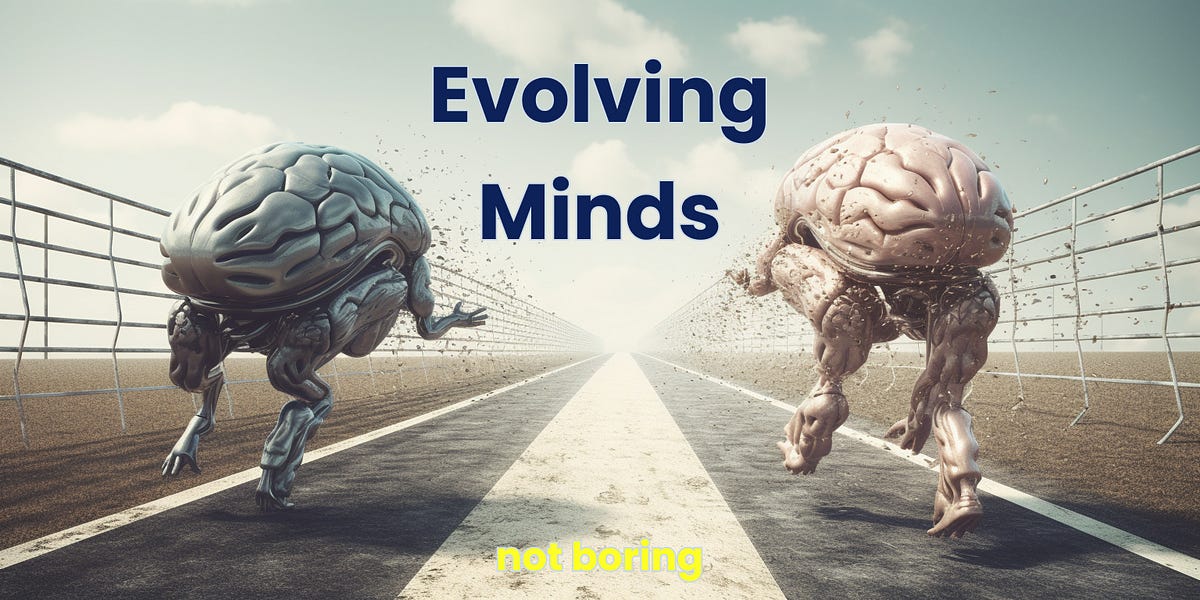
Is this a silent growth of autonomous driving?
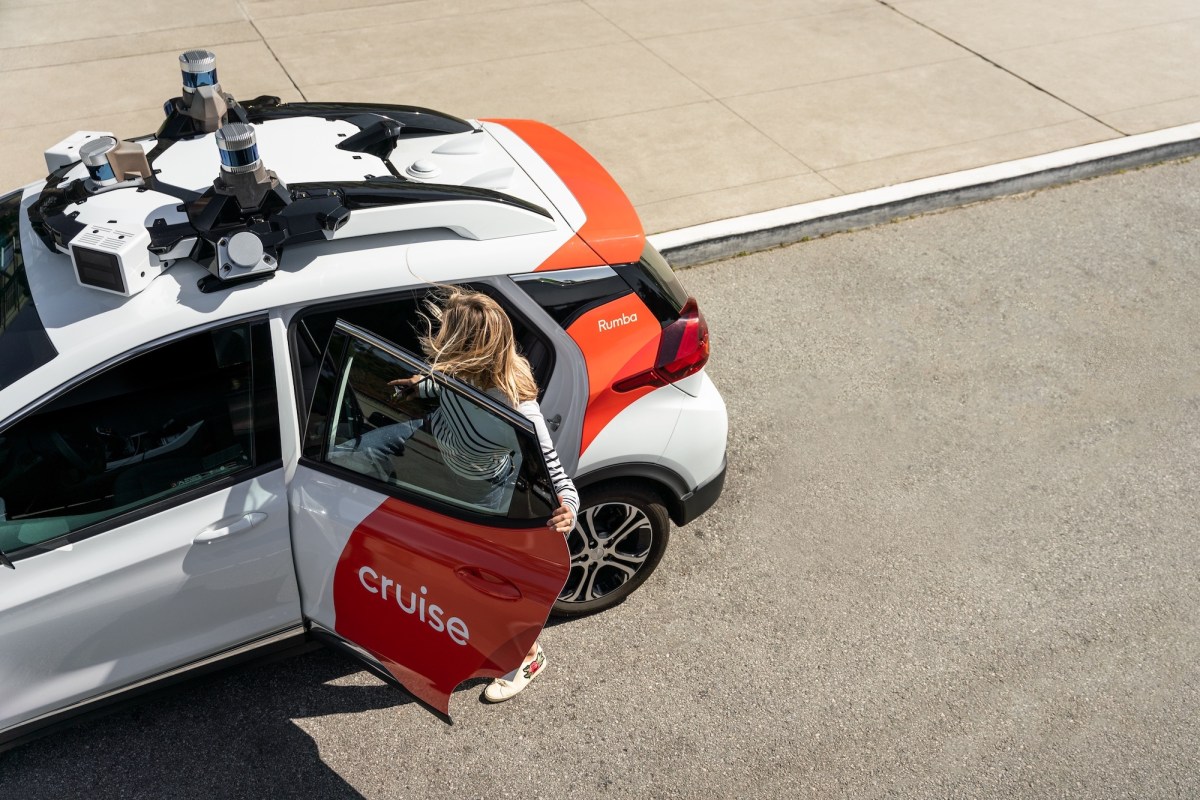
Again an endnote on our climate crisis…

Anab Jain is addressing the topic of design strategies; ancillary design “We need to foreground how we’re a part of a larger ecology rather than the masters of our surroundings.”
The operational conditions of ancillary design require us to reopen our imaginations to a design practice that is akin to mycelial growth.

Paper for the week
Some new papers entered my longlist last week. Let’s take out this one on “New neighbourhood, old habits? Delivery preferences of residents in new development areas and their assessment of alternative parcel logistics concepts: a case study of Berlin” (long titles are not a problem with academic research)
“This research conducted a case study in the western outskirts of Berlin, examining two newly built neighbourhoods and one existing residential area. Results from three survey waves of residents show that conventional doorstep delivery is preferred by 80% of the respondents. Nonetheless, there is a high willingness to use alternative delivery options, and respondents see benefits in climate-friendly delivery methods.”
It feels almost like marketing research: “This research also examines the willingness to pay for alternative parcel logistics concepts, which seems too low at the moment (at around €1 per shipment) to compensate for the additional costs of an operational change.
Gruber, J., Heldt, B. & Seidel, S. New neighbourhood, old habits? Delivery preferences of residents in new development areas and their assessment of alternative parcel logistics concepts: a case study of Berlin. J. shipp. trd. 8, 7 (2023).
https://doi.org/10.1186/s41072-023-00138-9












